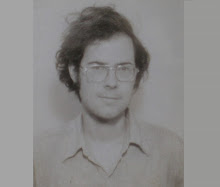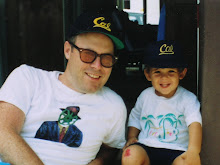One lunch (long ago) a group of us from work were sitting around the table discussing nothing much in particular, when one woman (in her early 20's at that time) plaintively exclaimed, "I've been good. I deserve to be happy."
My jaw dropped. Did she really believe people actually deserve to be happy? And if so, did those whose lives, as Hobbes might say, are "mean, brutish, and short" actually deserve their misery?
Could this really be how life works?
Or is it more likely (as I prefer to believe) that events, either good and bad, sometimes fall upon us randomly, out of our control and irrespective of our qualities (be they noble or base), and we must deal with them as best we can?
I came across an essay by David Rieff in Harper's magazine one day while on a long train trip (trains and planes are great places to read and reflect upon essays), and it immediately clicked with me. Here's an extract which I had copied into my notebook:
(From "Victims All?" by David Rieff. Harper's Magazine, October 1991:)
..."Beyond our innocent shores, it is understood that the past is not always knowable and never recuperable, that there is sometimes nothing to be done, and that reality conforms neither to our desires nor to our schemes, psychic or material. There is chance, and fate, and tragedy.
Of course, it is true that there is a group within the population who often do not know this or believe it. We call them children, and while we may envy them their ignorance, and their belief in the potency of their own wishes, we know that they are under a false impression. We also know, or should, that however much we may feel nostalgia for our childhood, there is no going back, no reprieve from adulthood, which is to say from consciousness. That is the splendor and misery of being an adult, a condition from which we should not want to and, more to the point, cannot recover.
...During the period that I was reading little but recovery books, I kept remembering an encounter I had seen once on television between reporters and the grieving father of one of the passengers killed when Sikh terrorists blew up an Air India flight over the Irish Sea in 1985. The weeping father had been shown coming out of the makeshift morgue that the Irish police had set up in a small coastal village, and no sooner had he done so than he was surrounded by hacks who bombarded him with questions. "What are you going to do?" one called out. To which, with astonishing dignity, the man replied simply, "Do? What do you expect me to do in this dirty world?" "
Saturday, September 15, 2007
Subscribe to:
Posts (Atom)





